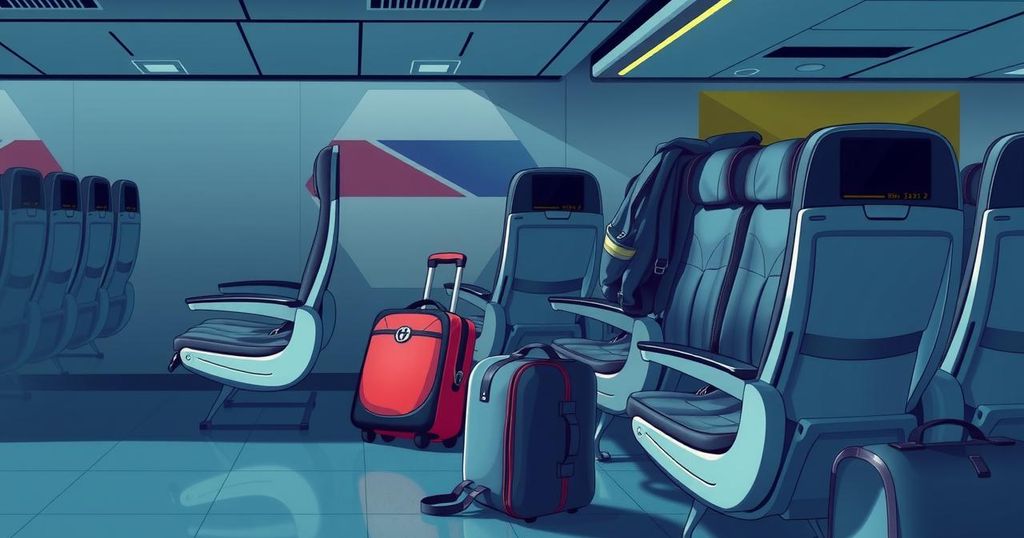The Trump administration has initiated its first self-deportation flight, repatriating 68 immigrants to Honduras and Colombia. This voluntary return, involving financial assistance, is designed to encourage those already contemplating going back. Experts, however, believe this offering may not attract many participants.
In a significant and somewhat controversial move, the Trump administration has organized the first repatriation flight for migrants opting to return to their home countries voluntarily. On Monday, 68 individuals, mainly from Honduras and Colombia, were flown back under a new government initiative encouraging self-deportation.
Of the returnees, 38 were Hondurans, including a sizable number of children. Each migrant received a $1,000 debit card alongside an offer to apply for legal entry into the U.S. in the future. This step is part of President Trump’s broader deportation strategy that he championed during his campaign for a second term in office.
Experts, however, are skeptical about the initiative’s appeal to migrants, suggesting it may not attract a significant number of people. They see it as mainly appealing to those already contemplating a return to their home countries. Notably, this announcement comes amidst heightened enforcement measures, including recent high-profile detentions in the U.S.
Kevin Antonio Posadas, a Honduran who had lived in Texas for several years, found the self-deportation process simple. “I wanted to see my family and my mom,” he shared, highlighting that applicants could complete the process through the CBP Home app. He expressed appreciation for the provided financial support, which eased the burden of returning home.
Homeland Security Secretary Kristi Noem emphasized the government’s message during the flight’s announcement, urging undocumented immigrants to take control of their departure using the CBP Home App. The implications of non-compliance were stark, featuring possible fines, arrests, and permanent bans from re-entry into the U.S.
The Department of Homeland Security confirmed that another 26 migrants on the flight had been sent to Colombia. Honduran officials noted they are providing additional cash and store credit to the returning migrants to facilitate their reintegration. Despite this, the Honduran deputy foreign minister remarked on the growing challenges faced by undocumented individuals in the U.S.
“They expressed increased difficulties in finding work and felt the climate was becoming more hostile,” stated Antonio Garcia. Wilson Paz, director of Honduran immigration, indicated a decrease in deportations this year as compared to last. He doubts many will take up the program, suggesting that it would attract only a limited number of applicants.
The scenario presents a complex picture of U.S. immigration policy under the Trump administration as it seeks to reshape the conversation around deportation and migrant reintegration. It remains to be seen how many will utilize this self-deportation option amid the ongoing crackdown on illegal immigration.
The Trump administration’s inaugural self-deportation flight aimed to facilitate voluntary returns for migrants facing challenges in the U.S. While some, like Kevin Posadas, found the process straightforward and beneficial, experts see this as unlikely to invigorate large-scale participation. With mounting concerns for undocumented migrants and the polarized nature of immigration policies, the effectiveness of this initiative remains uncertain.
Original Source: www.independent.co.uk






